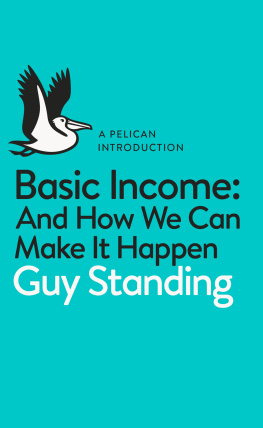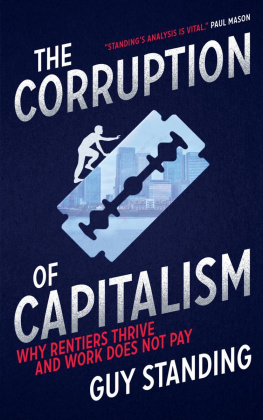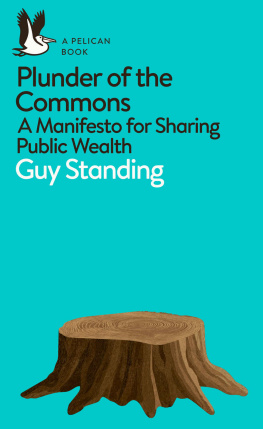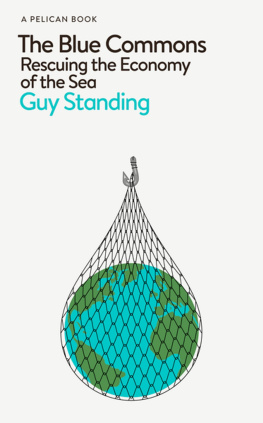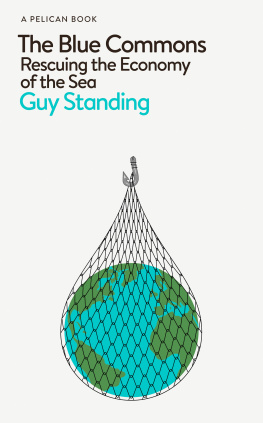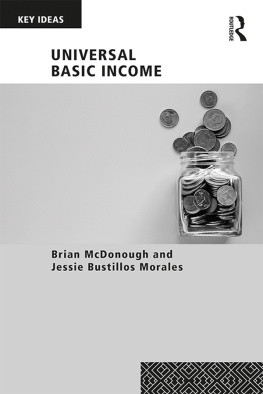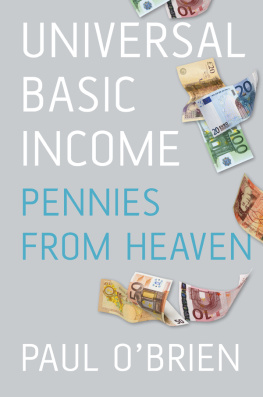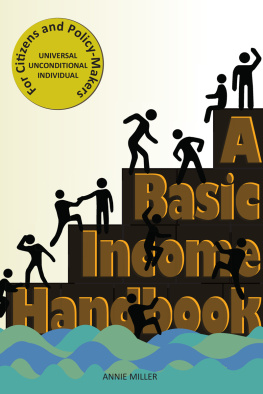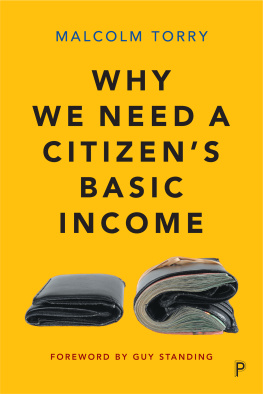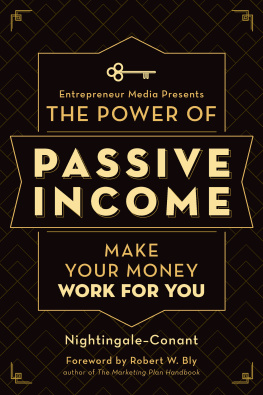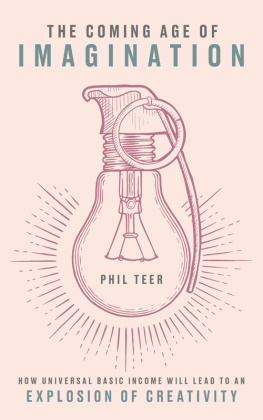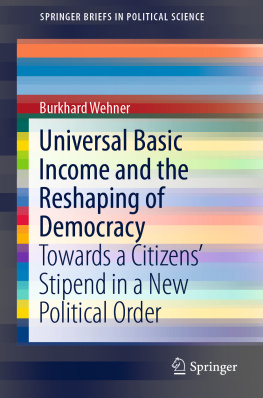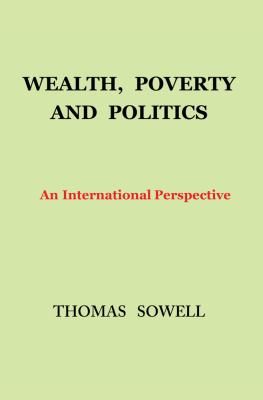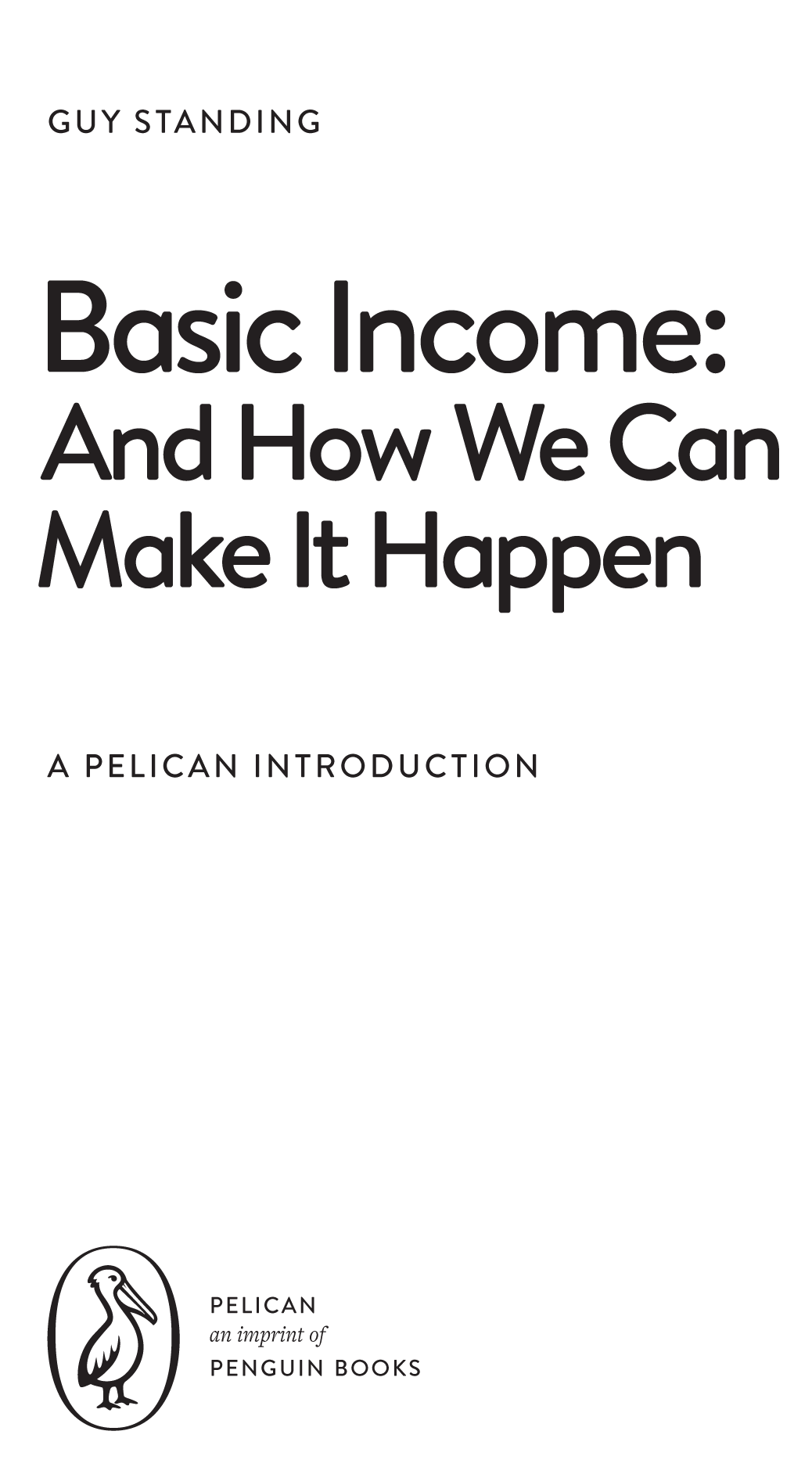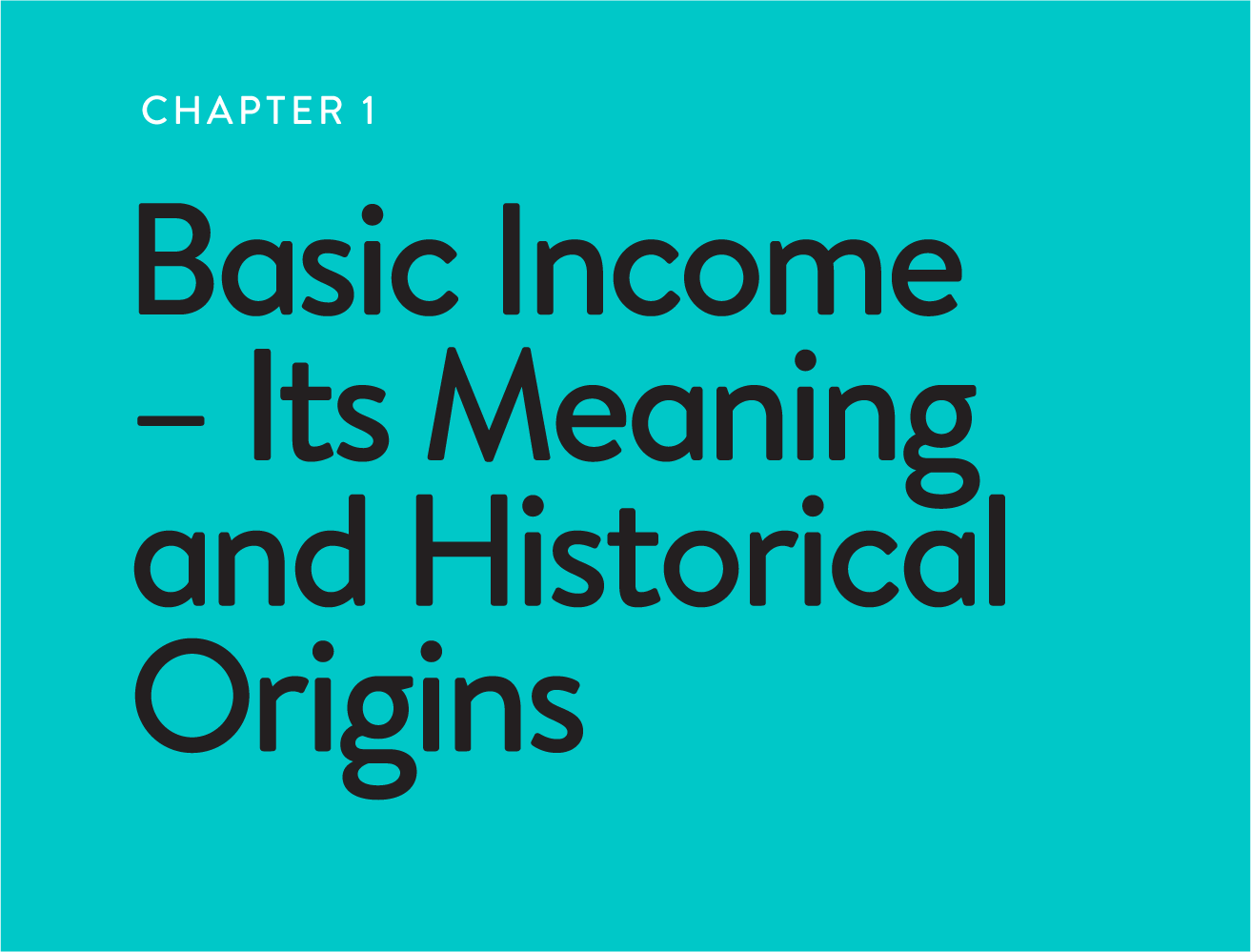PELICAN BOOKS
UK | USA | Canada | Ireland | Australia
India | New Zealand | South Africa
Penguin Books is part of the Penguin Random House group of companies whose addresses can be found at global.penguinrandomhouse.com .
First published 2017
Text copyright Guy Standing, 2017
The moral right of the author has been asserted
Book design by Matthew Young
ISBN: 978-0-141-98549-7
It is from the champions of the impossible rather than the slaves of the possible that evolution draws its creative force.
BARBARA WOOTTON
Preface
Since at least Thomas Mores Utopia of 1516, many thinkers have flirted with the idea of a basic income everybody in society receiving a regular amount of income as a right. Some have recoiled at the effrontery of the idea; some have mocked it, as fantasy and a threat to civilization albeit most unlikely to come about; some have pushed it into the dream, brother recesses of the mind; some have grown tiresome in their enthusiasm. The gamut of sentiments and reactions has been impressively wide.
However, only in the 1980s was an international network set up to promote debate around the issue. The Basic Income European Network (BIEN) was formally established in September 1986 by a small group of economists, philosophers and other social scientists from western Europe, meeting in Louvain-la-Neuve, Belgium. This was symbolic; Utopia, the first vision of a society with a publicly financed basic income, was originally published in Louvain (Leuven in Flemish). I was one of those founder members, and came up with the name. As well as being an acronym, BIEN played on the French word meaning well, hinting at the well-being we believe basic income could bring about.
Gradually, as more people joined from outside Europe, it became appropriate to rename the organization. In 2004 the E in BIEN was converted from European to Earth. Nevertheless, until quite recently, the idea that a basic income should be paid to all as a right drew little attention from mainstream commentators, academics or politicians. Honourable exceptions included Michel Rocard, a former French Prime Minister, and Bishop Desmond Tutu, winner of the Nobel Peace Prize, who both addressed BIEN congresses. Then came the financial crash of 20078, which threatened the global economy, since when there has been a huge surge of interest.
Nevertheless, please indulge me in a note of appreciation for those who, through the activities of BIEN, kept the idea alive during the doldrum years and whose research and writing helped to shape thinking and fill in the policy gaps. From the outset, we sought to ensure that every political hue could be represented, within limits of respect for gender equality, racial equality and free and democratic societies.
Indeed, there have always been tensions between those who have taken a libertarian approach and those who have been more egalitarian, and between those who see a basic income as a stand-alone policy and those who see it as part of a progressive political strategy. Yet this broad church approach has been key to the success of BIEN as it has built the knowledge base required for when it can be said with conviction that this is an idea whose time has come.
A Political Imperative?
The growing interest in basic income partly reflects a recognition that current economic and social policies are producing unsustainable inequalities and injustices. The twentieth-century income distribution system has broken down, as globalization has swept forward, as neo-liberal economics has done its work, and as the technological revolution has facilitated transformative changes in labour markets. One outcome has been a growing precariat, consisting of millions of people facing unstable, insecure labour, a lack of occupational identity, declining and increasingly volatile real wages, loss of benefits and chronic indebtedness.
The shares of national income going to capital and labour used to be roughly stable; that old consensus has gone. We are in a Second Gilded Age, in which more and more income is going to a minority of rentiers who are thriving from the proceeds of property physical, financial and intellectual. This has no moral or economic justification. And the inequities are multiplying, as is the resentment. The mixture of anxiety, anomie, alienation and anger is creating a perfect storm, enabling populist politicians to play on fears in order to build support for agendas that have echoes of the ugly aftermath of the First Gilded Age.
Unless a new income distribution system can be constructed or at least the firm beginnings of one the drift to the far right, which underpinned Brexit and the triumph of Donald Trump in 2016, will only grow stronger. I would argue that, as the anchor of a more egalitarian and more emancipatory system, basic income has become a political imperative, which is one of the reasons for writing this book.
About the Book
The book is intended to guide the reader through the arguments for and against the introduction of a basic income as a right, paid in cash (or equivalent) to all individuals regardless of age, gender, marital status, work status and work history. It draws on thirty years of research, advocacy and social activism by many people, and especially on the growth of BIEN, its sixteen international congresses and the hundreds of papers presented at them, up to and including the congress in Seoul in July 2016. As far as possible, I have given references and sources that interested readers can go to for more elaborated discussion.
However, the intention here is to provide an introduction and a reflective guide to the issues. In what follows, I consider what is meant by basic income and discuss the three main perspectives justice, freedom and security that have been used to justify it, as well as the economic rationale. I also deal with the various objections that have been made to it, especially on affordability and the impact on labour supply, and look at the practical and political challenges of implementation.
It is hoped that the book will be of use to politicians and policymakers as well as to what are sometimes rather patronizingly called lay readers. The simple call to give everybody a basic income is actually more complex than it sounds, and many people have strong opinions formed without evidence or considered reflection. So readers are urged to approach this book with as open a mind as possible.
As a founder member of BIEN and currently its honorary co-president, I am an unapologetic supporter of basic income. However, I have endeavoured to give the devil the best tunes (well, let us pretend!), so that readers can weigh the arguments for themselves. The purpose is, and should be, to encourage a dispassionate conversation, rather than a dialogue of the deaf. It is up to those who are in the political arena to take the conversation forward into action.
How to give politicians inclined to support a basic income the courage to say it out loud and work for it? I, for one, have grown tired of hearing prominent politicians say in private that they support basic income but do not know how to come out. I would like to think that the arguments in this book, underlined by the events of 2016, will help to strengthen their collective backbone.

